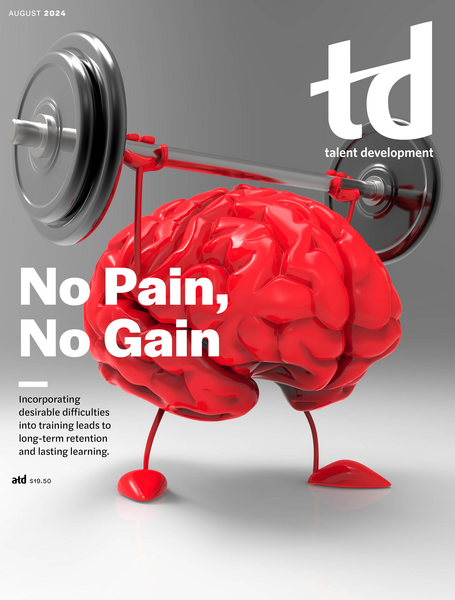TD Magazine Article
Making Ends Meet
Sound financial advice is advantageous for employees and employers.
Thu Aug 01 2024

More than half of employees have made poor decisions based on financial advice from others, according to BrightPlan's 2024 Wellness Barometer Survey. The survey, conducted by Walr and Workplace Intelligence, notes that, to contend with anxiety due to a struggling economy and inflation, it can be a good thing for individuals to turn to financial advisors or applications. But many individuals say they've received poor advice from family and friends.
Fifty-four percent of employees (respondents included a mix of 1,400 C-suite workers, HR decision makers, and employees) said their financial angst affects their productivity as much as 7.3 hours per week—costing approximately $183 billion annually for US businesses—and 52 percent said it harms their engagement. With that in mind, it behooves employees to improve their financial acumen and employers to provide better financial tools.
In fact, 92 percent of the BrightPlan study's leader respondents think companies should provide guidance and investment tools to assist employees; the same percentage believes employers should help talent improve financial literacy.
While many employers want to support the financial well-being of their staff, too often, the resources they offer aren't meeting employees' expectations. "Today's workers expect their benefits to support their holistic financial wellness, yet most employers still offer point solutions that lack this level of personalization and support," states an article on the survey results, "Employees Report Losing Over 7 Hours of Productivity Each Week Due to Their Financial Stress."
A report from FinFit and HR Dive's studioID, Inside the Wallets of Working Americans, likewise states that the right kind of assistance, such as helping to build emergency savings accounts and hardship funds, is critical for employees to feel secure. "Workers expressed strong interest in employee benefits designed to help them save money and pay down debt," the report notes.
Supporting employees with appropriate financial resources is a win-win, according to the 2024 Wellness Barometer Survey results. More than eight of 10 employees said such information would be beneficial, leading to a stronger commitment to their employer, an increased likelihood of staying at the company, and greater motivation to work harder. Employees are interested in topics around reassessing financial habits, including budgets and savings, and reducing spending. In addition, many employees work extra hours to earn more and strive to learn transferable job skills to improve their financial futures.
You've Reached ATD Member-only Content
Become an ATD member to continue
Already a member?Sign In

